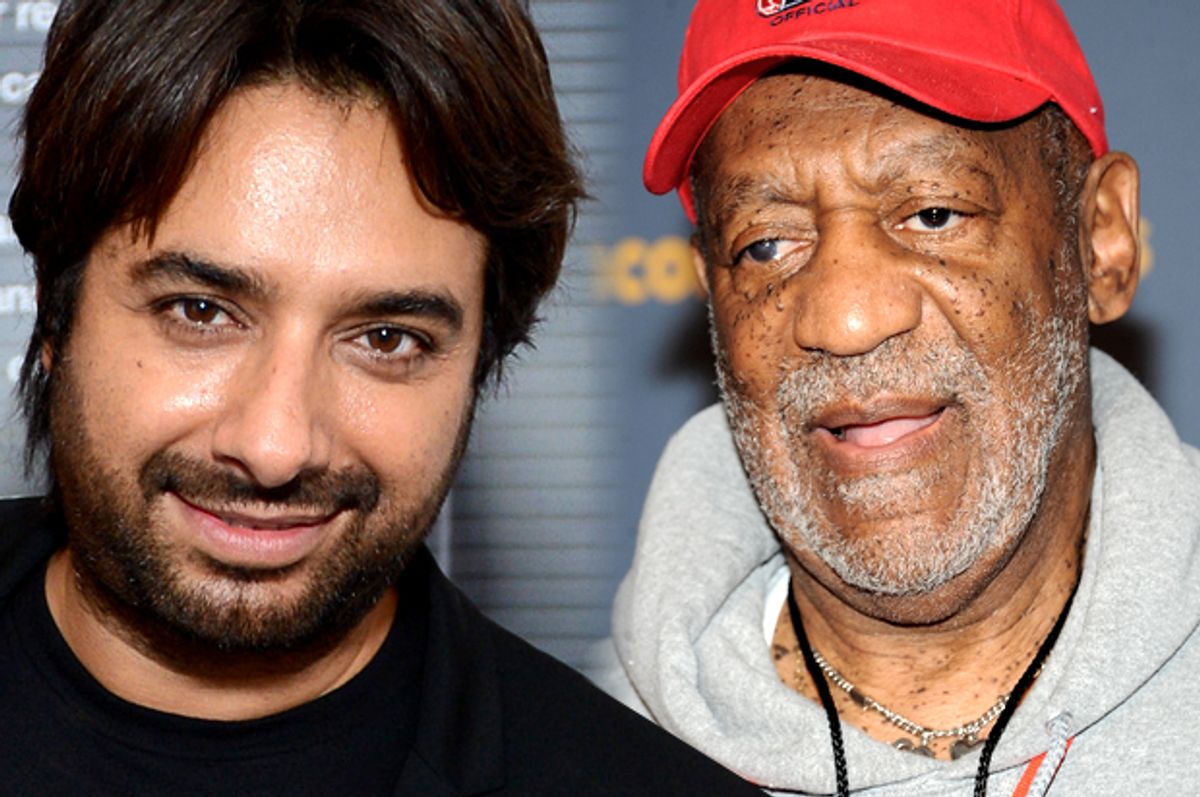Are there things we can say this year about sexual violence that couldn’t have been said before? There have been new victims, of course. New stories of violation in the news or whispered about in anxious secrecy. More people showed us the kinds of gymnastics we will perform in an attempt to deny the prevalence of rape and the punishing way our culture treats survivors. More women were brave, endured the public’s vitriol and disdain in order to tell their stories, support others and hold our systems to account.
In so many ways, this year looked a lot like last year. And the year before that. The same institutions failed us. We made so many of the same mistakes, and once again caught glimpses of how things might one day be different. The nature of the conversation about sexual violence got bigger. And so did the backlash. I’m often not sure how we come out on balance of good and bad or if the scales are always just tilting and tilting back, but I'm closing out the year feeling moved and challenged by the work that's being done, and crushed that we will be asked to do it again next year.
Some things have changed, but certainly not enough. Maybe we learned something, but certainly not enough.
College campuses and military bases are perhaps the two places where many will locate rape in 2014, and the names of famous men like Woody Allen and Bill Cosby will continue to loom large when we look back at the year that was. But we know that these are just reliable stand-ins for a violence that is always familiar and always close to home.
This was the year that Dylan Farrow wrote in the New York Times that she had been sexually abused by Woody Allen. In that piece, she shared the experience of watching the movie industry, critics and the general public close ranks around the man she said assaulted her when she was just a child. In response, there was a tremendous move to support her, and Farrow’s willingness to speak publicly inspired others to do the same. But she was also attacked. Called a liar or told she had been lied to.
And 2014 was the year that we were reminded (or, for so many of us, told for the first time) that 13 women had accused Bill Cosby of sexual assault but that no one really cared. And then, some months later, more women came forward, and it finally became too much to ignore. The list of women who say they were drugged and raped by Cosby currently stands at 20.
Deals were canceled. Specials put on hold. Tickets refunded. Questions asked about our icons and our biases. In this case, things seemed to turn around on a man alleged to be a serial rapist. And during that process of turning we saw the media’s complicity in protecting the rapists we don’t think can be rapists. The way that access, power and charisma can override the instinct to say something about the things we've seen and heard.
On the matter of ignoring those instincts, we saw more of that in 2014. The whispers through literary and media communities about the men who were creeps or weird about women, but never rapists in polite conversation. The stories we heard were often about niche and elite circles, but this kind of self-censorship and denial should sound familiar to most of us. It certainly sounded familiar to me.
This year we were pushed again to rethink our faith in the criminal justice system and the people and institutions appointed with “protecting” us. Daniel Holtzclaw, a police officer, was arrested for allegedly raping nine black women in Oklahoma City. An investigation into the New Orleans Police Department revealed that detectives there ignored rape and excused rapists. We saw these patterns repeated elsewhere. We were reminded again of how power protects.
But maybe we also got a little better at listening to survivors and holding space for people to speak about the violence they've experienced. And in this listening, maybe more connections were made between insidious norms about sex and consent and the policies and institutions that reinforce them.
There is so much I’m missing here because there is so much that fits into a year. There was Jada. Maryville. Florida State. Rehtaeh Parsons’ name, until this month, being censored from the Canadian press. Jian Ghomeshi. Rolling Stone’s appetite for readers overriding its basic journalistic responsibilities and obligations to its source, a move that would give fuel to rape denialists and do immeasurable harm to survivors.
George Will. Don Lemon. Patrick Henry College. The death of more sweeping sexual assault reforms in the military chain of command and the success of small changes. A sitting president making sexual assault on college campuses a central focus of his administration. A media tendency to pretend that rape only happens on college campuses. Sweeping organizing and organizers remaking institutions. Lots of good writing. Lots of bad writing. More conversations. More silences.
Good happened and bad happened. They don’t ever cancel each other out, but they leave us someplace that isn't easy to name, different and familiar as it is. I don’t know what exactly to say about it all. I hope we start listening more to the survivors and organizers doing the work that is transforming the current landscape. I hope we move further away from believing rapists are monsters and never the people we know and respect. I hope that something about this holding pattern exhausts and challenges us into finally breaking it.



Shares